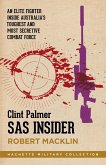The shock of the 9/11 attacks sent the American intelligence community into hyperactive growth. Five hundred billion dollars of spending in the Bush-Cheney years turned the U.S. spy network into a monster: 200,000-plus employees, stations in 170 countries, and an annual budget of more than $75 billion. Armed with cutting-edge surveillance gear, high-tech weapons, and fleets of armed and unarmed drone aircraft, America deploys the most advanced intel force in history.
But even after the celebrated strike against Osama Bin Laden, America's spies are still struggling to beat a host of ragtag enemies around the world.
In Intel Wars, preeminent secrecy and intelligence historian Matthew Aid ("our reigning expert on the NSA"-Seymour M. Hersh) delivers the inside stories of how and why our shadow war against extremism has floundered. Spendthrift, schizophrenic policies leave next-generation spy networks drowning in raw data, resource-starved, and choked on paperwork. Overlapping jurisdictions stall CIA operatives, who wait seventy-two hours for clearance to attack fast-moving Taliban IE D teams. U.S. military computers-their classified hard drives still in place-turn up for sale at Afghan bazaars. Swift, tightly focused operations like the Bin Laden strike are the exception rather than the rule.
Intel Wars-based on extensive, on-the-ground interviews, and revelations from Wikileaks cables and other newly declassified documents-shows how our soldier-spies are still fighting to catch up with the enemy. Matthew Aid captures the lumbering behemoth that is the U.S. military-intelligence complex in one comprehensive narrative, and distills the unprecedented challenges to our security into a compelling- and sobering-read.
But even after the celebrated strike against Osama Bin Laden, America's spies are still struggling to beat a host of ragtag enemies around the world.
In Intel Wars, preeminent secrecy and intelligence historian Matthew Aid ("our reigning expert on the NSA"-Seymour M. Hersh) delivers the inside stories of how and why our shadow war against extremism has floundered. Spendthrift, schizophrenic policies leave next-generation spy networks drowning in raw data, resource-starved, and choked on paperwork. Overlapping jurisdictions stall CIA operatives, who wait seventy-two hours for clearance to attack fast-moving Taliban IE D teams. U.S. military computers-their classified hard drives still in place-turn up for sale at Afghan bazaars. Swift, tightly focused operations like the Bin Laden strike are the exception rather than the rule.
Intel Wars-based on extensive, on-the-ground interviews, and revelations from Wikileaks cables and other newly declassified documents-shows how our soldier-spies are still fighting to catch up with the enemy. Matthew Aid captures the lumbering behemoth that is the U.S. military-intelligence complex in one comprehensive narrative, and distills the unprecedented challenges to our security into a compelling- and sobering-read.









